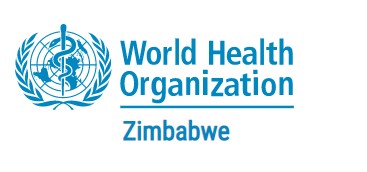Juliet Chikono, a resident of Zimbabwe’s capital, Harare, is now relieved since she is among the more than 2.1 million Zimbaweans who were vaccinated against cholera in the single dose reactive campaign to curb the latest outbreak of the disease that has been reported in all of the country’s 10 provinces.
“Our community has seen its share of challenges recently and I am taking steps to stay safe,” she says.
The month-long vaccination drive, which ended on 22 February 2024 in Harare, targeted people older than one year in 26 high-risk districts in seven provinces. The 2 303 248 vaccine doses were received in Zimbabwe in three batches, with the final batch of 66 612 received on 17 February 2024.
As of 3 March 2024, the country had recorded more than 27 055 suspected cholera cases, over 71 laboratory confirmed deaths and 501 suspected deaths since the beginning of 2023.
Supported by World Health Organization (WHO) in the African Region, teams were deployed to various provinces to supervise the campaign implementation. The first phase was completed in target districts in Harare province, as well as in Masvingo, Midlands and Mashonaland Central, achieving over 90% coverage.
To minimize large gatherings and prevent further spread of the disease, vaccination teams went from door-to-door, complementing fixed vaccination points in all health facilities in the affected areas. Each vaccination team comprised three community health workers (comprised of a vaccinator, social mobilizer and recorder), vaccinated an average of 150 people a day.
Ahead of the vaccination campaign, a comprehensive social mobilization campaign was rolled out to sensitize people, create demand for the vaccine and address vaccine hesitancy. “I am not a community health worker, but I will be encouraging my community to take the vaccine for their own protection,” Chikono says.
Shylet Maravanyika, a community health worker in Kuwadzana district of Harare, notes that communities are aware of the dangers of cholera and thanks to the public awareness campaigns, most people are eager to be vaccinated.
“We have been mobilizing our communities and for us it has been easy because people here saw how devastating cholera can be. Most are rushing to get vaccinated,” says Maravanyika.
“I am happy to be vaccinated,” says a resident of Kuwadzana, who preferred to speak anonymously. “I lost my relatives to cholera, so I embraced this when I heard from the community health worker.”
The Ministry of Health and Child Care, in collaboration with other ministries and supported by WHO, United Nations Children’s Fund (UNICEF) and other partners, rolled out a multisectoral cholera response. It focuses on streamlining coordination of the outbreak response at all levels, treatment of cases and prevention, through improved access to safe water, sanitation, personal and food hygiene, and the dissemination of preventive messages to vulnerable and at-risk populations.
Zimbabwe’s Minister of Health and Child Care, Dr Douglas Mombeshora, says the vaccination campaign complemented other ongoing outbreak control measures. The government is also reinforcing critical outbreak control and prevention measures, especially access to safe water.
“More than 3 000 boreholes have been drilled in rural areas and more resources and effort will be channelled towards this,” says Mombeshora.
In hotspot locations, cholera treatment centres have been established. Efforts are also ongoing to enhance key response measures, including disease surveillance and response, infection prevention and control, while water, sanitation and hygiene services are being improved to avert further spread of the disease.
Cholera is an acute, extremely virulent infection that can spread rapidly, with consequent dehydration resulting in high morbidity and mortality rates. It is however easily treatable, with prompt administration of oral rehydration solution or intravenous fluids.
The disease is both a health problem and a social-economic development challenge as well, requiring robust multisectoral response. The long-term solution for cholera control lies in economic development and universal access to safe drinking water and basic sanitation.
“While the oral cholera vaccines are a critical component in the cholera response, it is important to highlight that cholera thrives where sanitation and clean water are scarce or inadequate,” cautions Jean-Marie Dangou, Acting WHO Representative in Zimbabwe. “Cholera is a disease of inequality. We must therefore acknowledge the critical work that remains.”
Distributed by APO Group on behalf of World Health Organzation (WHO) – Zimbabwe.

